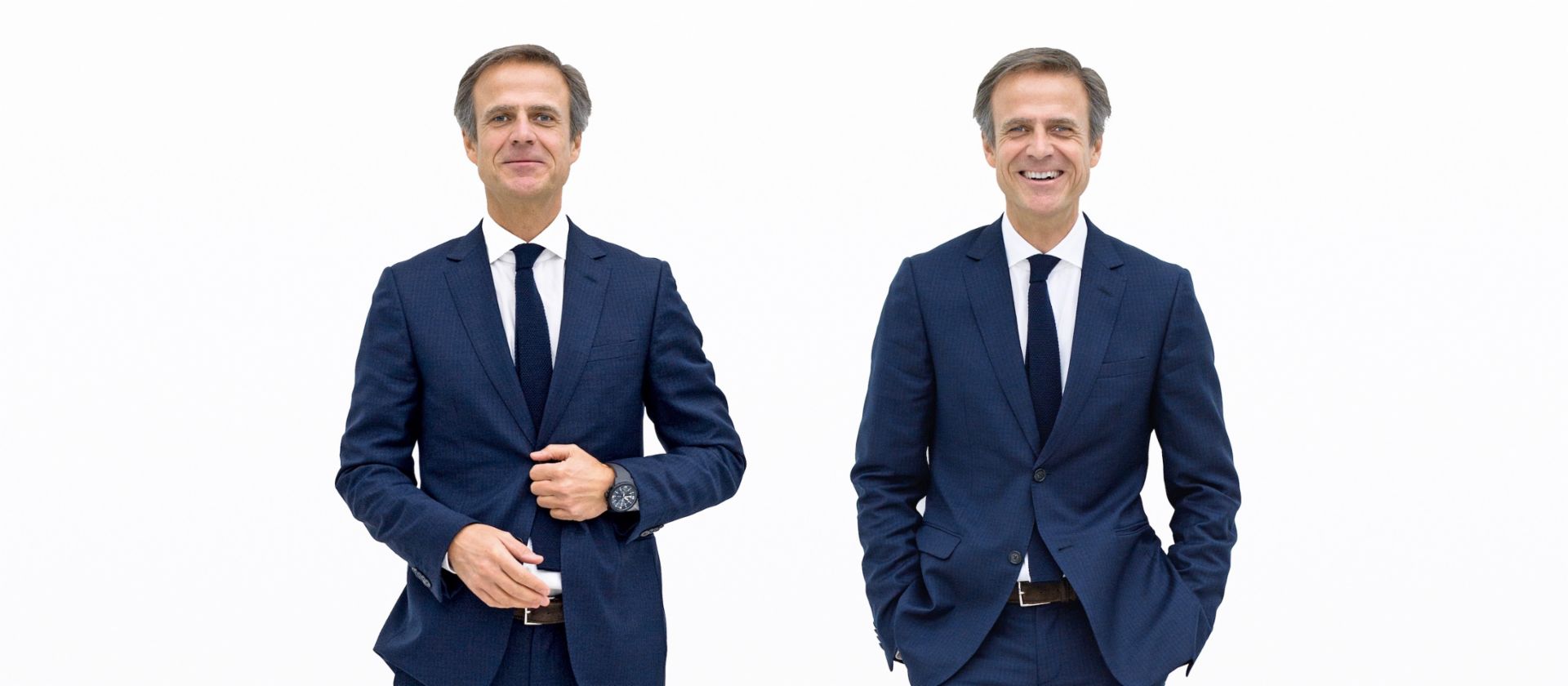Thinking Ahead
Breaking free of the swarm of autonomous currents, setting one’s own course, experiencing the pleasure of authenticity beyond efficiency. Michael Mauer, the director of Style Porsche, talks about the appeal of sports cars both now and in the future.
Maybe there actually is something like hoping the end will come soon—or at least that’s what I start to think on hearing the same thing for the third time at a trade fair or a car show, when young bloggers, journalists, or TV reporters pose what they think is a surprisingly daring question about the future of sports cars. It’s a variant of “Why should we continue to race cars?” To their way of thinking, sports cars will soon be fossils in a world of electric, self-driving cars.
The answer is easy, and for the same reasons as in 2018. It’s fun. There’s pure joy in speed, in physical forces, in what the car can do (if it’s a Porsche), and in what you can do with it. Twenty years from now, sports cars may well be even more coveted. They transcend the needs of everyday life but are located firmly at the epicenter of pleasure.
“Twenty years from now, sports cars may well be even more coveted. They transcend the needs of everyday life but are located firmly at the epicenter of pleasure.”
Breaking free from the swarm of autonomous currents. Setting one’s own course. Experiencing the pleasure of authenticity beyond efficiency. Sports cars embody all of these things—now and in the future as well. What might change over the next few decades is how cars communicate with us via sound. In two respects. Either the pursuit of racing lines will become a Zen-like affair, nearly soundless but extremely dynamic, or the “technology of the impossible” will generate new resonances that tell me how fast, critically, or ideally I’m moving.
Henry Ford, Ferdinand Porsche, and Ettore Bugatti could hardly have imagined that their motorized carriages would one day brake automatically when a pedestrian steps into the road—while adjusting the deceleration to prevent the car from skidding. It’s still a somewhat open question as to what we’ll be able to do in one or two decades. But I’m sure of one thing. There will continue to be very different categories of cars. Practical and pleasure-based. Small and opulent. Elegant and sporty. Why are there vinyl records? Why are there analog watches? Why does anyone write with a fountain pen these days? Why is it pleasurable to go for a walk? Every revolution has brought new developments—and kept what we love. Sports cars sweep us into a world of emotions. And that’s precisely what we seek. Sensations. Challenges. Beauty.
What exactly the sports car of the future will look like is a question of possibilities. But it’ll clearly be something extraordinary. A form that adds an exclamation mark to function. The sports car will probably also be a Level 6 or Level 7 vehicle. Autonomous and hyperconnected. It’ll probably be able to follow racing lines in the driving styles of popular racing robots or human race-car drivers. But it will have a steering wheel. The option at any time to drive oneself. The sports car of the future will continue to offer the promise of extreme performance. And its exterior will reflect that. The Porsche of even the far-off future will surely be recognizable as a Porsche. As a car whose genes contain a very special code: 911.
Michael Mauer
Mauer, fifty-five, has directed Porsche’s design department since 2004 and held the reins of Volkswagen AG’s group design division since the end of 2015.
Design
Why did Porsche Sports Cars become design icons? Because they were aesthetically successful? Because people found them "attractive"? Yes, what goes without saying. However, the really amazing thing was the harmony of the design concept, in which design follows function.
A Porsche is immediately recognisable. This is thanks to the distinctive design idiom and contours: the roofline, the wings which are higher than the bonnet, the powerful shoulders. Features that every Porsche model has picked up on and reinterpreted for its own era and character – for more than 60 years.
https://www.porsche.com/usa/aboutporsche/principleporsche/design/

.jpg/jcr:content/C385_Michael_Mauer%20(1).jpg)